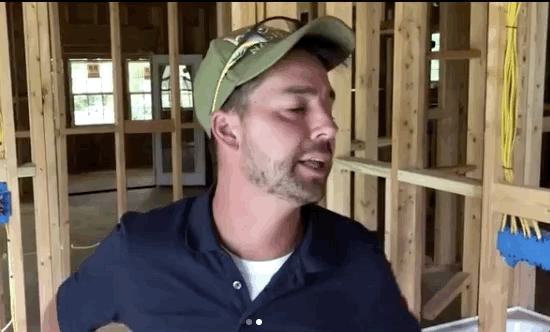After unlocking my first two convictions in ‘part 1‘, I want to conclude this mini-series with two more (despite the fact they are three months overdue – my apologies).
In the spirit of ‘better now than never’…let’s dive in!

- Know you are known.
One of my biggest vices is wanting to be understood…
…the thought that if people just gave me time, be it quality time, time to speak or time to adjust, they’d like what’d they see.
However, as I’ve recently rediscovered: The problem with this mindset is it sets unfair expectations, fuels ego, and fixes identity on satisfied love languages.
As Scripture attests, a pure desire to be known strays once it seeks to self-satisfy (Romans 8:5-8; Galatians 5-6 MSG). Like a stealthy narcissism, a warped desire to be known is not only egocentric but often can’t function without pride or manipulation. Even if the pride is silent, it can still hinder relationships through the anticipation of self-preservation and withdrawal. Consequently, if we cater to this type of insecurity, it shouldn’t surprise us to find ourselves sealed in cynicism and complacency.
As for the corollary, one of the best ways we invest in others is not preemptively burdening them with a want to be understood. Take it from one who has failed at this time and time again:
If there’s ever a way to trust God as more than enough, it’s through our ‘loved by God’ identity and our ‘love one another’ commission.
Don’t ever put yourself behind the ‘8 ball’ in fear others will set you there first. Instead, cast all fears and anxieties (Psalm 55:22, 1 Peter 5:7 ESV) before they take root knowing God gets you, what you’re going through, and what’s best for you. Trust the Lord will provide the social desires of your heart and focus your mind on loving Christ through serving His people. Surely the arm of the Lord will be with you and enlighten the right minds at the right time along the way.
Bottom line: The human heart wasn’t just made to be known and loved; it was made known and already loved.¹
After all, we were known before we were formed (Jeremiah 1:5, Psalm 139:13-16 ESV) and created for intimacy in a way only God could understand (1 Corinthians 14:2 MSG). ²
As the Psalmist declares…
“For you created my inmost being; you knit me together in my mother’s womb.” Yet, even there, “you desired faithfulness…and taught me wisdom in that secret place.” ~ Psalm 139:13, Psalm 51:6 (ESV)

- Discern the Why’s and the Ways of God
Whoever said Stephen King has been writing ‘2020’ couldn’t have been more accurate.
In a year featuring a global epidemic, killer tornadoes, police brutality riots, and economic recessions, the narrative has been turbulent to say the least.
Yet, despite the political and social unrest, there have been silver linings: Families coming together, spouses maturing in awareness, enterprise and liturgy finding new creative ways to connect and serve. Honestly, the list is longer than you think.
Hence, I’ve been wondering if part of God’s plan for 2020 is to start healing our land from the inside-out. Yeah, yeah, I get why some might think God is wanting to make us more uncomfortable. Like many, I’ve heard the ‘shake, not break’ sermons. But the way I see it, to stop there would be deceiving.
‘Cause truth is: While God may be exposing our privileged mentalities and independencies, His end goal is to perfect our hearts in the abidings of His love and draw us closer to glory. Accordingly, if you’ve felt the divine pruning or sensed the Spirit shaping your reliance, by all means, rejoice and receive God’s work in your life. Don’t waste time focusing on what you lack, but rather in faith, inquire without expectation the ways and why’s of God.
As John 14-16 reminds us…
…to ask of Him is not to be entitled, but to know you’re entrusted.
Even though you may feel pigeon-holed in this time, remember whenever you’re stuck in the corners of life, the only way to go – the only place to look – is up. In every journey, there are fires, conflicts, and forks in the road. But ultimately, the same God who fashioned you is the same God in the thick of your tribulations and decision-making. All the more reason to cherish 2020 knowing God as author, answer, and strength is in it.
Bottom line(s): 1) Know where your help and healing come from. 2) Pursue the bonus opportunities God is directing you to. 3) Embrace the burn as you yearn, the unseen in quarantine. 4) Remember that “God entrusts [you] with a bit of His extraordinary.” ~ Lana Christian
“When the Spirit of truth comes, he will guide you into all the truth, for he will not speak on his own authority, but whatever he hears he will speak, and he will declare to you the things that are to come. He will glorify me, for he will take what is mine and declare it to you. All that the Father has is mine; therefore I said that he will take what is mine and declare it to you.” ~ John 16:13-15 (ESV)
“‘This is what I covenanted with you when you came out of Egypt. And my Spirit remains among you. Do not fear. This is what the Lord Almighty says: ‘In a little while I will once more shake the heavens and the earth, the sea and the dry land. I will shake all nations, and what is desired by all nations will come, and I will fill this house with glory,’ says the Lord Almighty.” ~ Haggai 2:5-7 (ESV)
Selah.
Footnotes
- Per David, it’s interesting to note how godly sorrow and godly happiness points back to our ‘loved by God’ identity. If we’re to learn anything about the man after God’s own heart, it’s how to center faith, hope, and love through the emotion of our worship.
- Put another way, we were made by love with love for love.




